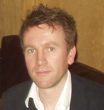The Eurovision Net contest 2006
 Nielsen//NetRatings is revealing Europe’s brightest emerging Internet markets in a bid to honour those nations most embracing the medium. Stay tuned to see the ‘Netizens’ earning “dix points” for their country:
Nielsen//NetRatings is revealing Europe’s brightest emerging Internet markets in a bid to honour those nations most embracing the medium. Stay tuned to see the ‘Netizens’ earning “dix points” for their country:
HELLO HUNGARY, HELLO GREECE
o Home remains the most popular location - 93% of Netizens (online Europeans) have accessed the web from there compared to 47% of people from work, 26% from educational institutions and 19% from Internet cafés
o Hungary is Europe’s emerging market most likely to access the net from home (97%) whereas Greeks are the Netizens most likely to access the net from work (67%)
o Bulgarians are the most likely to use an Internet Café (41%) or a library (16%)
ADVERTISEMENT
o Austrians are the most adventurous web consumers - accessing the net from the greatest variety of locations
 Alex Burmaster, European Internet Analyst at Nielsen//NetRatings says, “Accessing the web from public locations - particularly Internet Cafés - plays a major role in the emerging net markets. Investing in an Internet Cafe in Bulgaria, Romania or Latvia where at least a third of the Internet population use them is a better bet, for example, than in the UK where only 18% are likely to walk through the door.”
Alex Burmaster, European Internet Analyst at Nielsen//NetRatings says, “Accessing the web from public locations - particularly Internet Cafés - plays a major role in the emerging net markets. Investing in an Internet Cafe in Bulgaria, Romania or Latvia where at least a third of the Internet population use them is a better bet, for example, than in the UK where only 18% are likely to walk through the door.”
ARE YOU THERE LITHUANIA?
o Lithuanians are the most technologically advanced Netizens - being the emerging net market most likely to access the web from mobile phones, PDAs, games consoles and high street kiosks
o Bulgarian Netizens represent the emerging market most likely to access the net using laptops (44%); Latvians are the most likely to access the net using Digital TV’s (19%)
o Overall, 17% of Netizens currently access the web using a mobile phone, 5% access through a Digital TV with PDA’s and games consoles being used by 4% of Netizens to access the web
Burmaster continues, “The results are sure to surprise most people who think that the most exciting developments in regards to the growth of the Internet are occurring in the more established markets of Germany, the UK and France. This is simply not the case. For example Lithuanians are three and a half times more likely than UK surfers to access the web using a PDA. ‘Internet on the move’ is really being embraced in the Eastern Block - particularly in countries such as Lithuania, Ukraine and the Czech Republic.”
THE VOTES FOR 2006 ARE IN…
o More than one in ten online Europeans will make an online purchase in the next six months
o Other popular activities will include using a mapping service, downloading music, using an online bank or booking a holiday - highlighting the increasing penetration of the web into everyday life
Burmaster comments, “The figures show the huge potential for e-commerce in 2006 right across Europe, whether it is general purchasing or booking holidays online, and reminds us that successful Internet investment in the future isn’t all about China.”
THE RESULTS ARE BEING CHECKED…
o Over half (54%) of Netizens now read an online newspaper; 62% read the printed version. Ukrainians (82%) and Hungarians (77%) the most likely of the emerging markets to read online versions
o One in five (21%) now spend more time reading the online version of a newspaper than the print version - 10% spend equal time on each
o Almost one in three (31%) buy less printed newspapers because of online versions. However, 77% would prefer to buy a printed newspaper than pay a subscription for an online one
AND THE WINNER IS….
o Of the emerging markets Hungarian and Romanian Netizens are likely to be engaging in the most Internet activities over the next six months; Cypriots and Latvians the least
Burmaster concludes, “When looking at what online activities surfers across Europe will be engaging in over the next six months we can see clearly that the popularity of different activities varies hugely across different countries. For example - Bulgarians are the most likely to read news online, Italians the most likely to use a mapping service and the Swiss most likely to look for a job online.
In terms of activities many so-called less developed Internet nations will be embracing the net with far greater zeal than people in the UK. For example Ukrainian surfers are far more likely than UK surfers to research family history, look for a partner/new friend or gamble online. Furthermore, Hungarians are ten times more likely to delete cookies than their UK counterparts. Just like the offline world, when it comes to the Internet landscape Europe is an extremely varied and contrasting land.”
——-

